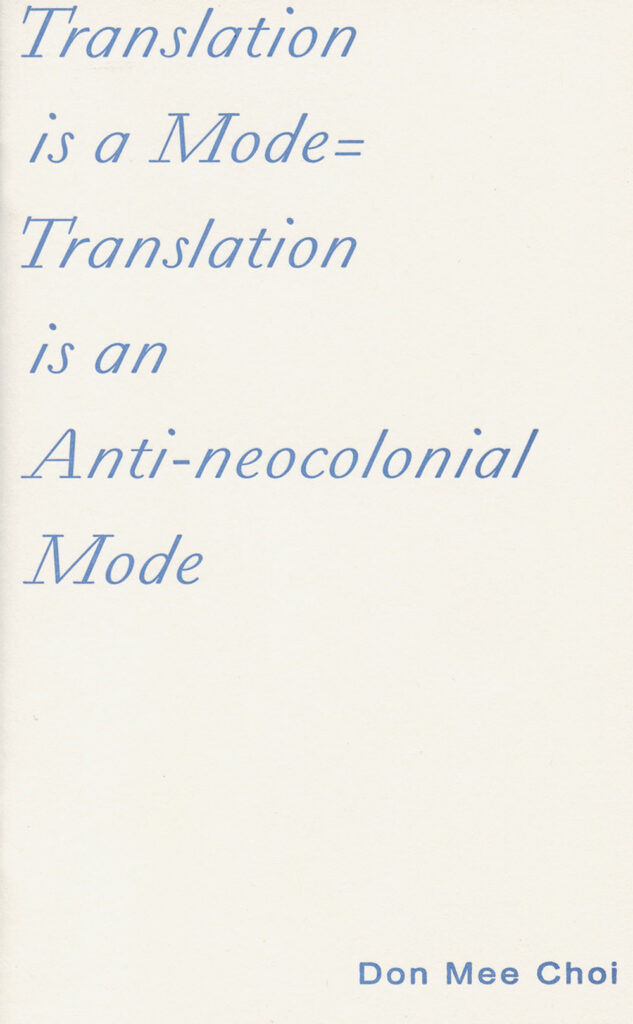I come from a land of neocolonial fratricide. I come from such twoness. I speak as a twin. The US established a temporary military rule of Korea from 1945 to 1948 and has never left… In time of war, the US military has operational control over South Korean forces. And since we are still technically at war, we are also technically and perpetually under US military command. I come from such neocolony. Since the end of the Korean War, the US and South Korea have carried out joint military exercises. The names of these joint exercises are worthy of our attention as translators: Counterblow, Strong Shield, Focus Lens, Team Spirit, RSO&I (Reception, Staging, Onward Movement and Integration), Key Resolve, Foal Eagle. These are neocolonial joints, hybrids, spirits—these are “order-words” to use Deleuze & Guattari’s term. I cross such order-words and map them, and superimpose another kind of map, my translations of Kim Hyesoon’s poetry. For me, Benjamin’s “Translation is a mode” must be jointed with “Translation is an anti-neocolonial mode.” I must speak as a twin.

Translation is a Mode=Translation is an Anti-neocolonial Mode
Don Mee Choi
May 2020
The ultimate force of Choi’s thinking lies in the counter-colonial model.
Joyelle McSweeney
Don Mee Choi is the author of three books of poetry and hybrid essays, and an award-winning translator of contemporary Korean women’s poetry. In this pamphlet, Translation is a Mode=Translation is an Anti-neocolonial Mode, she explores translation and language in the context of US imperialism—through the eyes of a “foreigner;” a translator; a child in Timoka, the made-up city of Ingmar Bergman’s The Silence; a child from a neocolony.
This pamphlet is part of UDP’s 2020 Pamphlet Series: twenty commissioned essays on collective work, translation, performance, pedagogy, poetics, and small press publishing. The pamphlets are available for individual purchase and as a subscription. Each offers a different approach to the pamphlet as a form of working in the present, an engagement at once sustained and ephemeral. To view a full list of pamphlets, click here.
About the Author
Born in Seoul, South Korea, Don Mee Choi is the author of DMZ Colony (Wave Books), Hardly War (Wave Books), The Morning News Is Exciting (Action Books), and several chapbooks and pamphlets of poems and essays. She has received a Whiting Award, Lannan Literary Fellowship, Lucien Stryk Translation Prize, DAAD Artists-in-Berlin Fellowship, and the 2021 MacArthur Fellowship. She has translated several collections of Kim Hyesoon’s poetry, including Autobiography of Death (New Directions), which received the 2019 International Griffin Poetry Prize.
Praise
Working through images of twinned speech, mirrors, darkness, and the long wound of colonization and dislocation, Choi weaves an evocative exploration of thinking, writing, and decolonizing through translation.
Blair Johnson, Full Stop
In the News
Links
Publication Details
ISBN: 978-1-937027-97-1
Pamphlet
Staple-bound. 24 pp, 5 x 8 in
Publication Date: May 01 2020
Distribution: Asterism Books (US), Inpress Books (UK)
Series: 2020 Pamphlet Series